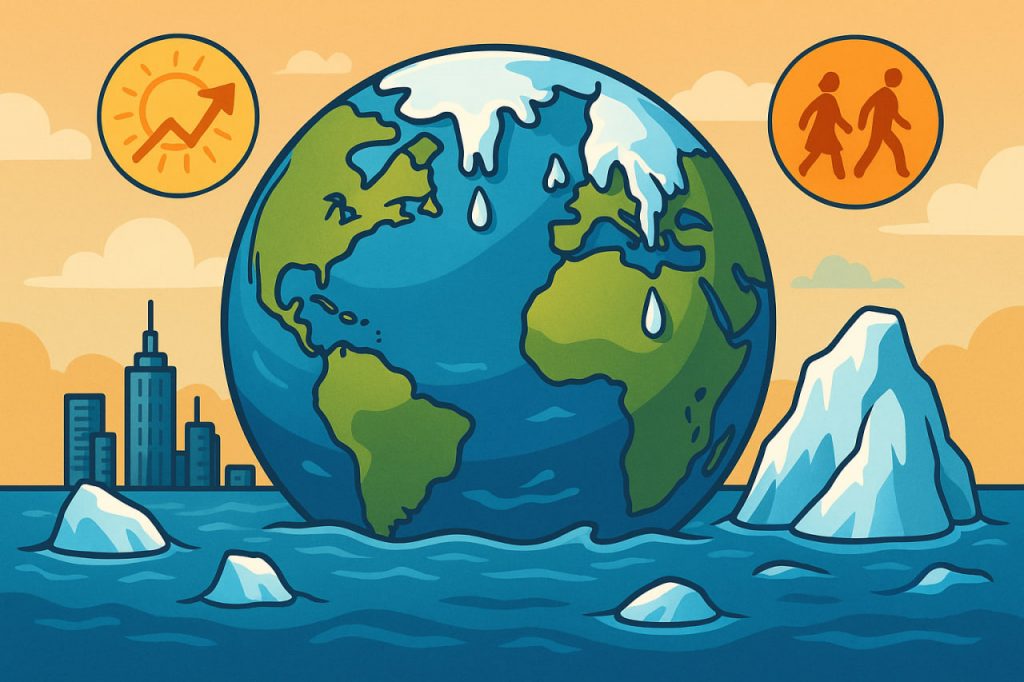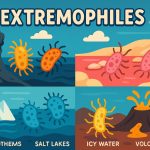Glaciers and polar ice caps store about 70% of the world’s freshwater, covering vast areas of Greenland, Antarctica, and mountain ranges. They act not only as water reservoirs but also as climate regulators. If all glaciers on Earth were to melt, the consequences would be dramatic and global, affecting ecosystems, weather, and human civilization.
1. Sea Level Rise
- If all glaciers and ice sheets melted, sea levels would rise by about 65–70 meters.
- Coastal cities such as New York, London, Shanghai, Mumbai, and Amsterdam would be completely submerged.
- Island nations (like the Maldives and Tuvalu) would disappear beneath the ocean.
2. Climate Changes
- Glaciers reflect sunlight due to their high albedo (reflectivity). Without them, more heat would be absorbed by Earth’s surface, accelerating global warming.
- Weather patterns would shift, with stronger storms, droughts, and unpredictable rainfall.
- Ocean currents could change due to massive inflows of freshwater, disrupting the Gulf Stream and affecting climates worldwide.
3. Freshwater Crisis
- Glaciers provide drinking water and irrigation for billions of people.
- The loss of mountain glaciers (e.g., Himalayas, Andes, Alps) would reduce river flows, causing severe water shortages in Asia, South America, and Africa.
4. Biodiversity Loss
- Species adapted to cold environments, such as polar bears, penguins, and seals, would lose their habitats.
- Ocean ecosystems would be disrupted as increased freshwater lowers salinity, affecting marine life balance.
5. Human Consequences
- Mass migration from flooded coastal areas would create hundreds of millions of climate refugees.
- Agricultural lands would be submerged or become too dry, leading to food shortages.
- Infrastructure collapse in coastal regions would cause trillions of dollars in damages.
6. Long-Term Geological Impact
- The redistribution of water mass would put pressure on Earth’s crust, potentially increasing volcanic activity and earthquakes.
- New shorelines and inland seas would permanently reshape geography.
Conclusion
If all glaciers melted, Earth would face one of the greatest crises in history: sea levels would flood cities, climates would destabilize, and ecosystems would collapse. While complete melting is unlikely in the near future, ongoing climate change is already shrinking glaciers at alarming rates. Protecting ice sheets is not only an environmental issue but also a matter of survival for future generations.
Glossary
- Glaciers – large masses of ice formed from compacted snow.
- Albedo – the ability of a surface (like ice) to reflect sunlight.
- Global warming – long-term increase in Earth’s average temperature.
- Climate refugees – people forced to leave their homes due to environmental disasters.
- Freshwater – water with low salt concentration, essential for human use.


